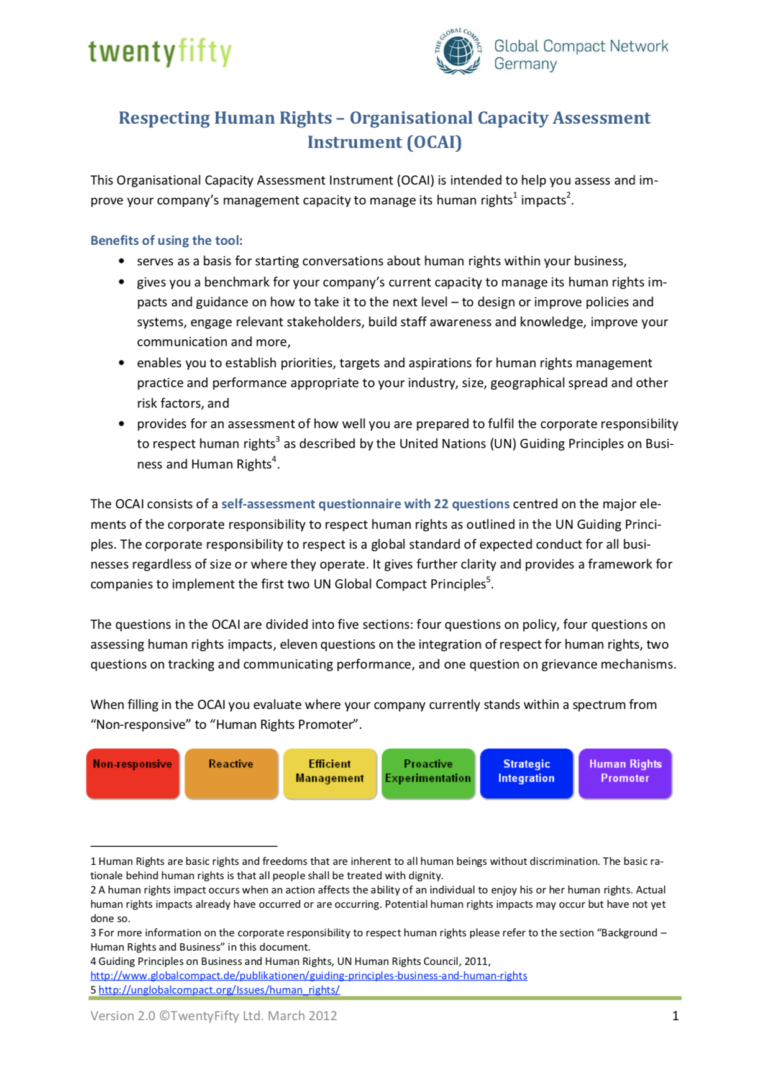This Organisational Capacity Assessment Instrument (OCAI) is intended to help you assess and improve your company’s management capacity to manage its human rights impacts. The OCAI consists of a self-assessment questionnaire with 22 questions centered on the major elements of the corporate responsibility to respect human rights as outlined in the UN Guiding Principles. The corporate responsibility to respect is a global standard of expected conduct for all businesses regardless of size or where they operate. It gives further clarity and provides a framework for companies to implement the first two UN Global Compact Principles.
The questions and instructions are included in the PDF file attached below.

